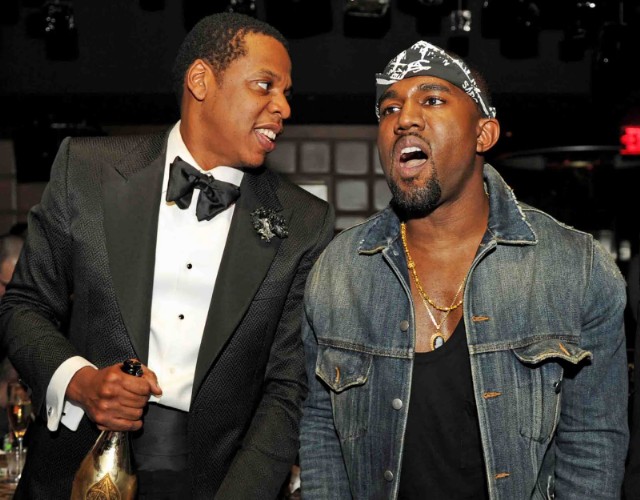How Kanye West ruined Jay Z and Tidal’s big week
Daniel Roberts,Yahoo Finance Fri, Apr 1 12:53 PM PDT Comments Sign in to like Reblog on Tumblr Share Tweet Email
In February, just a few days after releasing his new album “Life of Pablo” exclusively on the streaming service Tidal, Kanye West said on Twitter, “My album will never never never be on Apple… You can only get it on Tidal.”
It was a short-lived vow. On Friday — after just 6 weeks — West put the full album on Spotify, Apple Music, Google Play, and even SoundCloud. In the past, on the issue of exclusivity and when periods of exclusivity end, Tidal has said that it supports whatever way its artists want to distribute their content—exclusive to Tidal or not.
That sounds supportive indeed, but make no mistake: this is not a good look for Tidal, which scored mega buzz (and 400 million streams, 250 million of them in the first 10 days) by holding the album exclusively—buoyed by the artist’s insistence it would never be heard anywhere but Tidal. If there were West fans who had signed up for Tidal specifically to hear “The Life of Pablo,” they’d be justified in being aggravated.
West’s change of tune is unfortunate timing for Tidal, which otherwise had a big week of positive news. The service launched exactly a year ago, after Shawn Carter (Jay Z) bought the Swedish “lossless streaming” company Aspiro, which owned Tidal and WiMP, for $56 million. For its one-year anniversary, Tidal released numbers on its base (Tidal had never shared such figures, apart from unofficial numbers in a few Jay Z tweets). Tidal says it now has 3 million paying subscribers (unlike Spotify, Tidal has no free option) and, most notable of all, claims that 45% of them (about 1.4 million) pay for the pricey $20-per-month “HiFi” version.
If Tidal has 3 million subscribers, it means Carter has added at least 2.6 million new customers since buying the service, if not more. Aspiro had told him it had 540,000 at the time of sale. That claim is now the subject of a lawsuit by Carter, who is suing the Norwegian tech company along with its biggest shareholders, Schibsted Media Group and Verdane Capital. In a statement, Tidal said, “It became clear after taking control of Tidal and conducting our own audit that the total number of subscribers was actually well below the 540,000 reported to us by the prior owners. As a result, we have now served legal notice to parties involved in the sale.” A spokesperson for Schibsted told a Norwegian news outlet that Aspiro was publicly traded when it was acquired, and thus was subject to the “transparency of financial reporting. Otherwise we have no comment.”
The lawsuit filing was yet another piece of news about Tidal in a week full of Tidal news. Whether it was good or bad news depends on perspective. A salacious lawsuit typically comes with bad optics, and this one doesn’t make Carter look like the most savvy businessman, if he was truly duped by Aspiro. On the other hand, if the suit’s claim is true, then Tidal added even more than 2.6 million new subscribers in just one year.
Tidal is still far behind Spotify (30 million users) and Apple Music (11 million), but adding 2.6 million new users in a year is encouraging progress—it has certainly destroyed the meager 100,000 subscribers Beats Music had when it sold to Apple. (Dr. Dre still has the better bragging rights for now, having sold to Apple for $3 billion.) Of course, the company, according to sources, believes it is myopic of media outlets to compare Tidal right now to the existing competition. The fairer comparison, the company reasons, would be to look at the subscriber numbers of competitors when they had been around for just one year, not their current subscriber base.
Carter made the same argument in a tweet just one month after Tidal launched. “It took Spotify 9 years to be successful,” he wrote.

